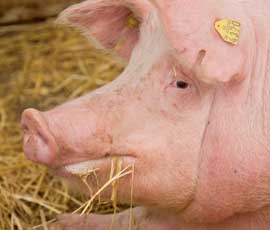Foston large-scale farm decision delayed again

A planning decision over proposals to build a large-scale pig farm in Foston has been delayed again.
Pig production company Midland Pig Producers (MPP) is seeking planning approval to develop a pig farm and an integral biogas plant on land next to Foston Prison in Foston, Derbyshire.
If successful, the development will house up to 2,500 sows in a state-of-the-art unit, producing 1,000 pigs a week for sale.
The Environment Agency had set a deadline of 31 January 2013 for MPP to provide additional information on the potential environmental effect of the project to support its planning application.
However, MPP requested and was granted an extension until May 2013 to provide the supporting material, citing the illness of an independent expert who had been asked to analyse the data.
The planning decision, which will be made by Derbyshire County Council, now looks likely to be delayed until the middle of the year at the earliest.
The project, which would create one of the UK’s largest pig farms, has raised strong opposition from locals, animal rights campaigners and celebrities, including chef Hugh Fearnley-Whittingstal and Liverpool comedian Paul O’Grady.
Protestors say the large-scale farm would spread disease, create pollution, endanger the health of local residents and increase traffic.
However, MPP insisted the proposed farm would protect welfare standards and residents would not be affected by the usual smells associated with pig farms.
Managing director Martin Barker said: “There will be three systems in place to ensure that all the gases (that cause the smell) are retained for the biogas plant.
“If one system should fail, the other two will still work, preventing the ammonia and gases escaping into the atmosphere.”
The Foston development has replaced the withdrawn plan for a 8,000-cow dairy unit in Nocton, Lincolnshire, as the number-one target for opponents to US-style large-scale farming in the UK.
MPP is one of the largest pig production companies in the UK, producing more than 100,000 pigs each year from 30 farms in eight counties and employing more than 150 people.
Win for large-scale farms at Oxford debate
